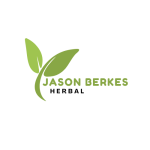Herbal medicine, the practice of using plant-based remedies for health and wellness, is experiencing a resurgence in popularity. With its roots in ancient traditions and increasing support from scientific research, herbal medicine offers a natural, holistic approach to health. Let’s dive into the evidence-based fundamentals of herbal medicine and discover its potential to enhance modern healthcare.
The History and Evolution of Herbal Medicine
Herbal medicine has been practiced for thousands of years, forming the foundation of traditional systems such as Ayurveda, Traditional Chinese Medicine (TCM), and Indigenous healing practices. Over time, this rich heritage has influenced modern medicine, with many pharmaceuticals derived from plant compounds. For instance, aspirin was inspired by willow bark, and digitalis, used for heart conditions, originates from foxglove.
Today, herbal medicine combines ancient wisdom with scientific validation, making it a dynamic and evolving field.
How Herbal Medicine Works
Plants produce bioactive compounds like alkaloids, flavonoids, and terpenes, which can influence human health. These compounds often serve as the plant’s defense mechanisms against pests and diseases, but for humans, they can:
- Reduce inflammation
- Support immune function
- Regulate hormones
- Promote relaxation or energy
For example, turmeric contains curcumin, a potent anti-inflammatory compound, while ginseng supports energy and stress resilience.
Evidence-Based Benefits of Common Herbs
Research has validated the effectiveness of many herbs. Here are some of the most studied:
- Echinacea: Known for boosting the immune system and potentially reducing the severity and duration of colds.
- Ginger: Proven to alleviate nausea and support digestive health.
- St. John’s Wort: Used for mild to moderate depression, supported by multiple clinical studies.
- Chamomile: Effective for reducing anxiety and improving sleep quality.
- Milk Thistle: Contains silymarin, which supports liver health and detoxification.
Forms of Herbal Medicine
Herbs are versatile and can be prepared in various forms depending on their intended use:
- Teas and Infusions: Ideal for extracting water-soluble compounds like flavonoids.
- Tinctures: Alcohol-based extracts offering a concentrated dose.
- Capsules and Tablets: Convenient for standardized dosing.
- Topical Applications: Salves and creams for skin health or localized relief.
- Essential Oils: Used in aromatherapy and for topical applications.
Safety and Considerations
While herbal medicine is natural, it’s essential to approach it responsibly. Here are key considerations:
- Dosage Matters: Overdosing on certain herbs can lead to toxicity. For example, too much licorice root can cause high blood pressure.
- Interactions with Medications: Some herbs, like St. John’s Wort, can interact with prescription drugs, altering their effectiveness.
- Quality Control: Choose reputable brands that test for purity and potency to avoid contaminants.
- Consult Professionals: Always consult a qualified herbalist or healthcare provider before starting new herbal treatments, especially if you have underlying conditions or are pregnant.
Integrating Herbal Medicine with Modern Healthcare
The integration of herbal medicine into mainstream healthcare is growing, with more practitioners recognizing its complementary role. For example:
- Chronic Conditions: Herbs like turmeric and ginger can support the management of arthritis and digestive disorders.
- Mental Health: Adaptogens like ashwagandha and rhodiola help reduce stress and support mental clarity.
- Preventive Care: Herbal teas and supplements can bolster the immune system and promote overall wellness.
The Science of Herbal Medicine
Advances in technology have allowed researchers to isolate active compounds in herbs and study their effects in clinical trials. Evidence from these studies provides a scientific basis for traditional uses, enhancing credibility and acceptance.
For instance:
- Curcumin in Turmeric: Shown to reduce markers of inflammation in conditions like arthritis and metabolic syndrome.
- Aloe Vera: Proven effective in wound healing and as a soothing agent for burns.
Sustainability and Ethical Sourcing
As the demand for herbal medicine grows, so does the need for sustainable practices. Ethical sourcing ensures:
- Conservation of endangered plants.
- Support for local communities that harvest herbs.
- Reduction of environmental impact through organic farming.
Getting Started with Herbal Medicine
For those new to herbal medicine, here are some tips:
- Start Small: Begin with a few widely used herbs like chamomile or peppermint to understand their effects on your body.
- Educate Yourself: Read reputable books or take courses on herbal medicine.
- Grow Your Own: Cultivate a small herb garden with easy-to-grow plants like basil, thyme, and mint.
- Consult Experts: Work with a certified herbalist to create a personalized plan.
A Holistic Path to Wellness
Herbal medicine is more than just remedies—it’s a journey of connecting with nature and taking an active role in your health. By understanding the evidence-based fundamentals, you can integrate this ancient wisdom into modern life, enhancing your well-being naturally and sustainably.
Whether you’re seeking to manage a specific condition or simply improve your quality of life, herbal medicine offers a wealth of possibilities. Embrace its potential and embark on a path to holistic health, rooted in the healing power of plants.


